
Podcast: Play in new window | Download (Duration: 21:19 — 14.3MB) | Embed
Subscribe: Apple Podcasts | Spotify | Email | RSS | More
We need our emerging adults healthy in spirit, mind, body. How can we learn more about their exploding mental illness? Start with people with lived experience.
Blog subscribers: Listen to the podcast here. Scroll down through show notes to read the post.
Subscribe to Health Hats, the Podcast, on your favorite podcast player
This episode is best watched on YouTube
Episode Notes
Prefer to read, experience impaired hearing or deafness?
Find FULL TRANSCRIPT at the end of the other show notes or download the printable transcript here
Contents with Time-Stamped Headings
to listen where you want to listen or read where you want to read (heading. time on podcast xx:xx. page # on the transcript)
Toward a more profound understanding 01:18
A taste of the first three episodes 05:28
A word from our sponsor, Abridge 11:09
Adolescent Advisory Panel 12:32
Integrated community collaboration 13:28
Leadership with lived experience 15:11
Nuggets from the mine -CURESZ.com 18:43
Please comment and ask questions
- at the comment section at the bottom of the show notes
- on LinkedIn
- via email
- DM on Instagram or Twitter to @healthhats
Credits
Music by permission from Joey van Leeuwen, Drummer, Composer, Arranger
Web and Social Media Coach Kayla Nelson @lifeoflesion
Photo by Nick Fewings on Unsplash
Photo by Kat J on Unsplash
The views and opinions presented in this podcast and publication are solely my responsibility and do not necessarily represent the views of the Patient-Centered Outcomes Research Institute® (PCORI®), its Board of Governors or Methodology Committee. Danny van Leeuwen (Health Hats)
Sponsored by Abridge
Inspired by and grateful to Bethany Yeiser, Robert Doherty, Chris Gordon, Greg Fredo, Sneha Dave, Betsy Neptune, Sue Donnelly
Links
Nuggets from the Mine
CURESZ.org Comprehensive Understanding via Research and Education and Schizophrenia
Related podcasts
Young Adults with Complex Conditions Transitioning from Pediatric to Adult Medical Care
Young Adults, Parents, alone, together. High school, college, professionals, parent. Plus physician, teacher
About the Show
Welcome to Health Hats, learning on the journey toward best health. I am Danny van Leeuwen, a two-legged, old, cisgender, white man with privilege, living in a food oasis, who can afford many hats and knows a little about a lot of healthcare and a lot about very little. Most people wear hats one at a time, but I wear them all at once. I’m the Rosetta Stone of Healthcare. We will listen and learn about what it takes to adjust to life’s realities in the awesome circus of healthcare. Let’s make some sense of all this.
To subscribe go to https://health-hats.com/
Creative Commons Licensing
The material found on this website created by me is Open Source and licensed under Creative Commons Attribution. Anyone may use the material (written, audio, or video) freely at no charge. Please cite the source as: ‘From Danny van Leeuwen, Health Hats. (including the link to my website). I welcome edits and improvements. Please let me know. danny@health-hats.com. The material on this site created by others is theirs and use follows their guidelines.
The Show
Proem
Health Hats: We, the collective societal we need so much. Our health, our health systems, health equity are an embarrassing, unacceptable mess. I’m old. I’m 70. And I’m at the end of my life. We need our young people, our adolescents and our emerging adults to be healthy and take over to do what we couldn’t or what we haven’t. You must be living in a total bubble not to see how the mental health of our young adults has suffered. It’s scary at risk. The problem has stared us in the face for a long time. But now in this COVID world, it’s undeniable. We can’t ignore the personal family and community stress and isolation.
We’re falling behind in access to professional services as clinicians and frontline workers leave their jobs or die during the pandemic. We need healthy, resilient, motivated, caring, young adults to survive. For them to survive and for our communities to survive.
Toward a more profound understanding
I want to better understand what life is like now as an emerging adult. I can remember myself as an emerging adult. But that was a long time ago. I’m still a two legged cis-gender old white man of privilege with all the implied limitations. I wanted to start this series on emerging adults with mental illness to better understand what it feels like and what people are going through. People with lived experience with mental illness and those that support them. What do they deal with? What forces are at play? What are they trying to do?
I want to start with people with lived experience. Meaning young adults or people who are recently young adults and then parents and teachers, then professionals and community organizations, then policy makers and researchers examining from the center out.
Podcast intro
Welcome to Health Hats, the Podcast. I’m Danny van Leeuwen, a two-legged cisgender old white man of privilege who knows a little bit about a lot of healthcare and a lot of our very little. We will listen and learn about what it takes to adjust to life’s realities in the awesome circus of healthcare. Let’s make some sense of all of this.
Approach
Health Hats: In this podcast series, I’m going to be thinking about the sense of belonging, the sense of control, the sense of connection, trust, talk, stable home, confidentiality, access to supportive peers and adults. Access to professional help, different kinds of treatment, inpatient, outpatient, home, family, school programs, self-management tools that people have in their toolbox.
Version two – do over
This is a second version of this series introduction. Thanks to my stalwart podcasting cronies, Carole Blueweiss, Kathy Cocks, Tania Marien, and Ame Saunders who ruthlessly critiqued the first version of this episode.
Up and running
I have already completed 11 interviews with emerging adults, parent, teachers, doctors, researchers, community health programs, system administrators, and have six more scheduled. And I’ll probably add more as I meet people with experience and investment in this challenging dilemma.
I will now share clips from the first three episodes. Then I will tell you stories from my history, with adolescents, with behavioral health, with inclusion of and partnership with people with skin in the game. Finally, I ask you to listen or watch to the end as I continue my new feature of Nuggets from the Mine, a recommendation of a resource I use and value. Since we all have different brains and take in information differently you can find an article grade transcript for people who primarily read, a podcast for those who prefer to listen both on my website episode #pod185 along with references and links in the show notes, plus a video on YouTube at YouTube @healthhats. If pressed, I recommend the video.
A taste of the first three episodes
Let’s listen to three clips from the first episodes in the series. Emeka Chima, a young man on the autism spectrum with paranoid schizophrenia, his mom, Erika Blair, and Annie Schneider, a young woman with severe depression. I’m grateful for their willingness, no eagerness to share their experience.
Emeka Chima
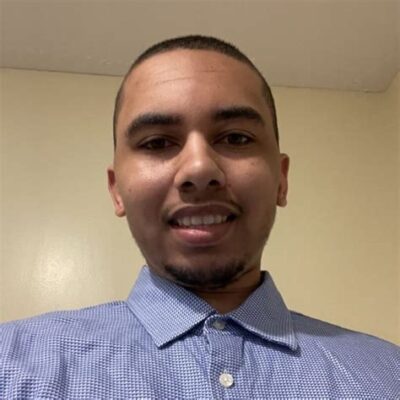
Emeka Chima
Health Hats: I don’t know what it feels like to have psychosis. What did, what were you experiencing that you knew something is like, really messed up here?
Emeka Chima: It started in my junior year of high school. I was turning 16 the fall semester when things started going haywire. I was hearing voices, auditory voices, and I was seeing visual hallucinations and I could not understand like what was happening to me. I didn’t even know what psychosis was at the time. I did not know what was happening to me. All I know is maybe I need help.
Health Hats: You heard voices and at first, they were just voices? You were hearing something and then you realized, your mom’s not hearing them or other kids in school aren’t hearing them. They were voices to you. That’s really disconcerting. That must have been really lonely.
Emeka Chima: I felt alone probably 90% of the time. I knew I had my parents there. They were my best allies. But I don’t think they would ever know how I was feeling because they never dealt with schizophrenia or psychosis.
Erika Blair
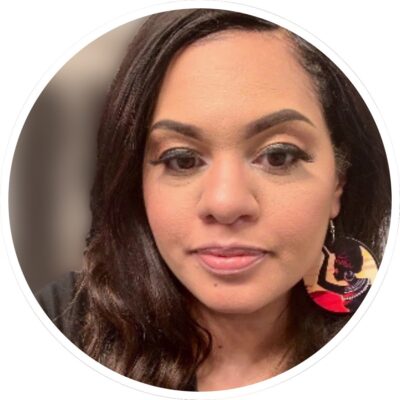
Erika Blair
Health Hats: You must be proud of your son.
Erika Blair: Very, very, very proud of him. I am so honored to have him as a son. He is not only a great help and support to me and our family, but he has so much to give to others as well. Which is very inspiring.
Health Hats: Emeka welcomes you speaking with me about your journey together. There must have been a transition that happened from, everyday parent child tension and conflict to the teamwork that it seems like you have. Can you tell us something about that evolution?
Erika Blair: We have to step back to when he was first diagnosed with schizophrenia and he had his first onset, his first psychotic episode. It happened as a teenager. Even before that he was diagnosed with autism as a child. I always kind of knew there was some social and sensory things. Because they felt like nothing impacted him academically. He never got any help from the school system. But he did end up having a psychotic break. I think it was the combination of the school pushing him academically and then the social trying to fit in as a socially awkward teenager. It was very difficult. He had his first psychotic break. That was very devastating because we didn’t know what was going on. It was scary for him. He was terrified, scary for us as a family. And that’s when he was first hospitalized. as a parent, to see your child go through that, and he was such a wonderful child. To see a child suffering like that is the most heartbreaking thing. I was also pregnant at the time with twins, and so it was hard on my pregnancy. It was a very, very difficult time. But I just tried. I wanted to get him better and get him help, you know, that was my focus. That’s all I wanted to do.
Annie Schneider
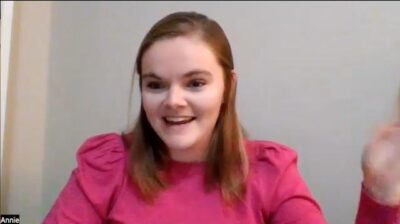
Annie Schneider
Annie Schneider: I can remember, when I was 15, over ten years ago, things were not right, and I was not my best self in many ways. I was struggling a lot. I think my parents noticed it in me first. But eventually, I very quickly saw a lot of it. I was unfocused in school. I had a quick temper. I just had a lot going on that was not healthy. And of course, you know, many people, when we’re teenagers, you have your mood swings and all kinds of normal things. We’re humans. We’re all humans. But I was not like other 15-year-olds. I had a lot of preoccupation and obsession with negative thoughts and negative thought patterns and was unfocused in school. My mom would report, and later on, I found out from my mom. She, of course, didn’t tell me at the moment. Later on, I found out I had a very glassed-over, glazed-over look on my face and in my eyes a lot of the time. I know it sounds cliche and kind of dumb, but I didn’t have much of my spirit. I was a shell of myself starting at 15. At least that was when it turned into a healthcare journey to recover and get well.
A word from our sponsor, Abridge
Now a word about our sponsor, ABridge. Record your healthcare conversations with doctors and other clinicians with ABridge. Push the big pink button and record. Read the transcript or listen to clips when you get home. Check out the app at ABridge.com. Or download it on the Apple app store or Google play store. Let me know how it went.
Why me?
While I’m not an expert on emerging adults or mental illness. I do know a little bit about a lot of health care, and I care deeply. I can contribute by producing this series. Perhaps I can share some formative stories that heightened my sensitivity, awareness and passion about starting with listening to and partnering with emerging adults and people with severe mental illness and approaching thorny problems with an integrated community collaboration.
Adolescent Advisory Panel
For formative story one, I’m grateful to Dick Argys, Chief Administrative Officer, who trusted and partnered with me. And Greg Fredo, the Administrative Director of the adolescent program who welcomed me into their inspiring world. I was working at the Boston Children’s Hospital, leading the patient family experience initiative. The adolescent services had an adolescent advisory panel. The emerging adults with severe medical challenges on the advisory panel had a lot to say about the services they received. They welcomed new emerging adults to the services and helped them navigate. The process of the advisory panel also identified and mentored new, younger participants on the advisory panel.
Integrated community collaboration
For formative story two I’m grateful to the late, great, Bob Doherty, then Executive Director of St. Peter’s Addiction Recovery Center, SPARC, who often blew my mind and took many chances with me. I worked for SPARC, an organization that both provided behavioral health services and managed behavioral health services for an insurance company. I was director of quality management. We measured outpatient follow-up within 30 days after an inpatient discharge. We were required to track as part of NCQA, the National Committee for Quality Assurance that monitors health plans. And frankly, we stunk.
About 17% of the inpatient discharges were followed up in inpatient treatment within 30 days. At first, we attempted to fix that on our own and we weren’t successful. So, my boss pulled together an integrated community initiative that included emergency departments, paramedics, EMTs, firefighters police social services, housing, and food banks. We worked on this together, identifying people who cycled through services, heavy users of services and collaboratively coordinated case management. This integrated support of people with behavioral health crises, led to our outpatient follow up within 30 days of an inpatient discharge to go from 17% to something like 75%. Quite a success!
Leadership with lived experience
For the last formative story, I’m grateful to Chris Gordon, Medical Director and Keith Scott, Director of Peer Services at Advocates, Inc, who opened my eyes and my heart to every day, neurodiverse people. Advocates supports about 23,000 people with disabilities. People we supported sat on our Board and operations committees. When I started working there, there was a gentleman who had some kind of paranoid schizophrenia on the Board. I went to my first Board meeting and presented some satisfaction survey results that people who are cared for in our group homes were less than satisfied with these group homes. Our scores were poor. This gentleman started talking for a good three to five minutes, which sounded to me like stream of consciousness. I really didn’t understand him. But I noticed after about 30 seconds that nobody looked troubled or rolled their eyes. People listened intently with no interruptions. When this gentleman stopped the Medical Director who was facilitating the board meeting stopped and said, well, you really had a lot to say there. Why don’t we take a minute and try to process what you said? And there was a minute, a minute of silence and I’m thinking, what is going on here? I was really startled, but after about 30 seconds, I started replaying what he said, and I noticed some threads in what he said. After that minute, I realized, what we realized together, this gentleman was talking about how hard it was for residents in our group homes when a staff member would leave and there would be no notice that that staff person left. All of a sudden, a new staff person appeared. It freaked people out. Such an insight! We didn’t ask any questions in our surveys about that. But when we took what this gentleman said and let people know that so-and-so caretaker or caregiver was leaving and introduce the new person in no time. Meaning the next time we did a survey; our results were dramatically better.
The stage is set
Perhaps you can now see where I’ve gotten my perspective, passion, relative expertise about engagement and partnership with people with lived experience. Who know process and are included in that process whatever their abilities and challenges and communication styles. Alrighty then.
I lack a profound understanding of emerging adults with mental illness. So, I intend to learn from producing this multimedia series. I hope you will learn with me and appreciate that we here are all real people, not faceless. We so need each other. No one has a complete picture. No one has all the answers. I hope this series motivates us to explore, empathize, and partner for action. Thanks for joining me for this series introduction. Let’s see what we can learn in the circus of healthcare.
Nuggets from the mine -CURESZ.com
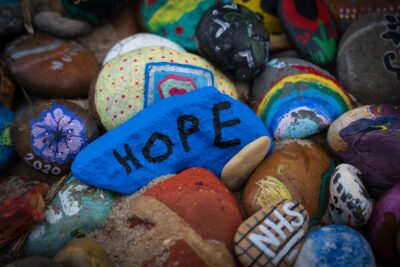 Bethany Yeiser of C U R E S Z. Comprehensive Understanding via Research and Education and Schizophrenia introduced me to Emeka Chima and Emeka introduced me to his mom, Erika Blair. CURESZ envisions a future where schizophrenia and related psychoses are widely accepted as neuro-biological brain conditions and can be prevented, treated, or cured with restoration of wellness and full functional recovery. The organization and website offers many resources, including treatment checklists, research information about treatment and a mentor network. The site provides guidance for clinicians, patients, and families, and people like me seeking to learn. I especially like the treatment checklist that includes setting treatment goals. The quarterly newsletter provides a variety of useful information for any stakeholder. Check it out. C U R E S Z.org.
Bethany Yeiser of C U R E S Z. Comprehensive Understanding via Research and Education and Schizophrenia introduced me to Emeka Chima and Emeka introduced me to his mom, Erika Blair. CURESZ envisions a future where schizophrenia and related psychoses are widely accepted as neuro-biological brain conditions and can be prevented, treated, or cured with restoration of wellness and full functional recovery. The organization and website offers many resources, including treatment checklists, research information about treatment and a mentor network. The site provides guidance for clinicians, patients, and families, and people like me seeking to learn. I especially like the treatment checklist that includes setting treatment goals. The quarterly newsletter provides a variety of useful information for any stakeholder. Check it out. C U R E S Z.org.
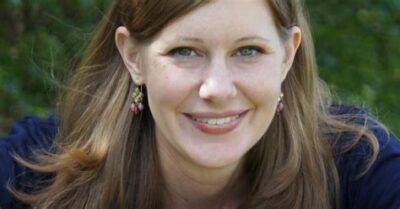
Bethany Yeager
Podcast Outro
I host, write, edit, engineer, and produce Health Hats, the Podcast. Kayla Nelson provides website and social media consultation and creates video trailers. Joey van Leeuwen supplies musical support, especially for the podcast intro and out. I play bari sax on some episodes alone or with the Lechuga Fresca Latin Band. I’m grateful to you, who have the most critical roles as listeners, readers, and watchers. See the show notes, previous podcasts, and other resources through my website, www.health-hats.com, and YouTube channel. Please subscribe and contribute. If you like it, share it. See around the block
